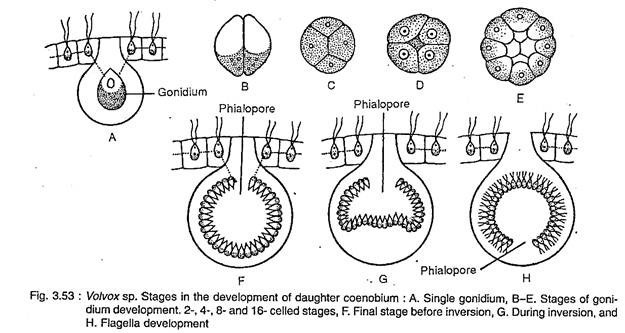
gonidium [goh-nid-ee-uh m] ExamplesWord Origin noun, plural go·nid·i·a [goh-nid-ee-uh] /goʊˈnɪd i ə/.
- (in algae) any one-celled asexual reproductive body, as a tetraspore or zoospore.
- an algal cell, or a filament of an alga, growing within the thallus of a lichen.
Origin of gonidium 1835–45; New Latin, equivalent to gon- gon- + -idium noun suffixRelated formsgo·nid·i·al, go·nid·ic, adjectivego·nid·i·oid, adjectivein·ter·go·nid·i·al, adjective Examples from the Web for gonidium Historical Examples of gonidium
The motile force is imparted to the gonidium by dense rows of waving cilia with which it is completely surrounded.
Scientific American Supplement, No. 460, October 25, 1884
Various
At free end of each sterigma is formed an oval body—a spore or “gonidium” (d), which, when ripe, is thrown off from the sterigma.
The Elements of Bacteriological Technique
John William Henry Eyre
British Dictionary definitions for gonidium gonidium noun plural -ia (-ɪə)
- a green algal cell in the thallus of a lichen
- an asexual reproductive cell in some colonial algae
Derived Formsgonidial or gonidic, adjectiveWord Origin for gonidium C19: from New Latin, diminutive from gono- gonidium in Science gonidium [gō-nĭd′ē-əm] Plural gonidia
- An asexual reproductive cell found in certain algae that form colonies. Gonidia undergo repeated mitoses to form new colonies, which then hatch out of the parent colonies.
- A chlorophyll-bearing, photosynthetic algal cell housed in the thallus of a lichen.
 Liberal Dictionary English Dictionary
Liberal Dictionary English Dictionary